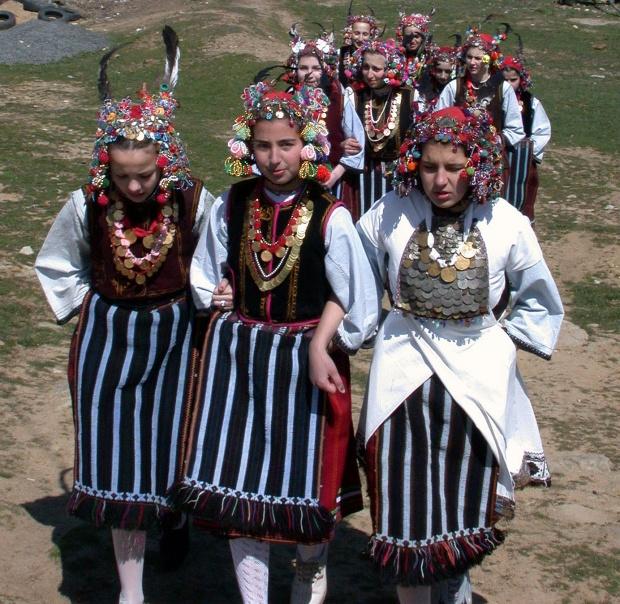St. Lazarus Feast (Lazarovden in Bulgarian) is one of the moveable feasts, because its date is set according to the date of Easter every single year, and is celebrated on the Saturday before Palm Sunday. In the gospels this is the day of the Raising of Lazarus, one of the miracles performed by Jesus Christ.
 In the Bulgarian popular tradition the feast of Lazaritsa, Lazarnitsa ot Lazarus Saturday is a stage in the transition from winter to spring, and also from death to life. In the Bulgarian mythology Lazarus is the lord of woods and bushes. He carries an axe and clears woods to make farming fields for peasants. He comes to bring a new beginning for nature and his gift for girls is marriage.
In the Bulgarian popular tradition the feast of Lazaritsa, Lazarnitsa ot Lazarus Saturday is a stage in the transition from winter to spring, and also from death to life. In the Bulgarian mythology Lazarus is the lord of woods and bushes. He carries an axe and clears woods to make farming fields for peasants. He comes to bring a new beginning for nature and his gift for girls is marriage.
This is the day of initiation of girls in pre-marriage age. With their heads decorated with green leaves, flowers and bird feathers aimed to bring luck, they tour the houses of the village and dance their Lazarus dances. In the traditional code, a girl who failed to take part in Lazarus girls' celebrations will never get married. It could be that a mountain dragon would come and take her away to marry her.
The ritual songs of Lazarki (girls who join Lazarus Saturday rituals) convey best wishes for health and fertility; they bless farmers, young girls and boys, young men, women and babies. The ritual tour of the village is meant to create a spirit of joy, celebration, luck and fertility in the community. Housewives would give white eggs and coins to girls. The eggs will later be painted for Easter. Drawing up a symbolic circle, Lazarki always return to the point where they have started. In the popular tradition the circle was ascribed with a powerful protective function.
English Daniela Konstantinova
The historic town of Tryavna will celebrate St Lazarus' Day, traditionally held on the Saturday before Palm Sunday. The Bulgarian custom, known as lazaruvane , is closely linked to the themes of love and marriage and will be re-enacted this..
The feast of the Annunciation (Blagoveshtenie in Bulgaria) is a holy day , a symbol of God’s infinite mercy to people and especially to women, blessed to bear new life, but also an embodiment of the eternal human longing for something better in the..
Clocks and bells will ring out in the center of Stara Zagora on Saturday, when the city will host the XXIV Masquerade Games Festival . The event will start with a traditional parade of participants. Attractive babugers, araps, old men and other..

+359 2 9336 661
